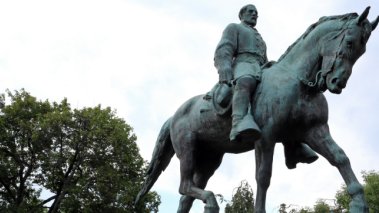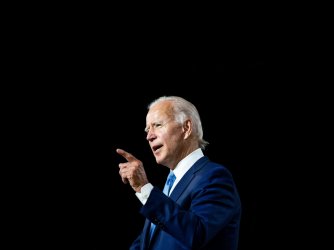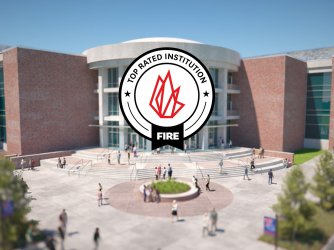Table of Contents
Public universities must resist pressure to discipline students for attending Charlottesville rally

Last weekend’s protests — and tragedy — in Charlottesville, Virginia, have left many grappling with the question of how to confront speech that offends their deepest-held values and beliefs. FIRE has always argued that the answer is to use one’s own expressive rights to counter ideas one finds offensive or harmful, rather than demanding reflexive censorship or, worse yet, resorting to violence. As the role of social media in our society grows, many have taken to that broad platform in attempts to combat hateful speech.
Specifically, as reports from the Charlottesville rally began to roll in, people started publishing pictures of those taking part in the rally, seeking to identify them and subject them to public criticism.
It is important to remember that the public identification — using publicly available information — and criticism of individuals attending the rally is constitutionally protected expression. However, many of these “outings” have included calls for unconstitutional action by government officials. Again, while these calls are themselves protected speech, they ask the government to take action that the First Amendment forbids it to take.
For example, more than 35,000 people have signed a change.org petition calling for the expulsion of a University of Nevada, Reno student who participated in the Charlottesville rally and whose photograph has become somewhat emblematic of the events there. Fortunately, UNR has resisted the calls for the student’s expulsion, citing his First Amendment rights:
“UNR police looked at it — he wasn’t arrested, he didn’t break any laws,” [the Chairman of the Nevada System of Higher Education Board of Regents] said. “We don’t have any right to terminate him. Expression of free speech is protected in the country. We don’t like what he said, but that’s what makes this country so great — people can have the right to say what they want.”
UNR’s response is the appropriate one. Attending the rally, like publicly criticizing those who attended the rally, is protected by the First Amendment. Indeed, participation in rallies, demonstrations, and protests is core political speech, where First Amendment protection is, as the Supreme Court observed in Meyer v. Grant (1988), “at its zenith.” A public university could no more expel a student for attending the Charlottesville rally than it could for attending a rally in support of a presidential candidate. While many like to repeat the trope that “freedom of speech doesn’t mean freedom from consequences,” often citing a frequently misused XKCD comic, the law is clear: public university administrators are government actors for First Amendment purposes, and students may not be disciplined for constitutionally protected expression.
Unfortunately, not all administrators have acted with the same regard for First Amendment rights. After a picture circulated online showing a rally participant wearing a University of Arkansas shirt, many misidentified the individual as professor at UA, who bore a resemblance to the individual in the picture. After ascertaining that the picture was not of a UA faculty member, the university issued a statement indicating that it was investigating whether the individual in the picture was a current UA student.
But there is no legitimate reason for UA to be investigating whether or not its students attended the rally. A UA student would be well within his First Amendment rights to participate in the rally, no matter how offensive it might have been to others. So long as the student did not break any laws, it is none of the administration's business what constitutionally protected expression he engages in. To investigate students for doing nothing more than exercising their First Amendment rights is deeply chilling, and potentially unconstitutional in and of itself.
The tactic of rounding up an internet mob in order to encourage unconstitutional discipline of students is unfortunately not a new one. In 2015, Texas Christian University suspended student Harry Vincent after a non-student offended by Vincent’s social media activity publicized some of his tweets and asked others to contact the university to request disciplinary action. Months later, Sam Houston State University investigated a student after her tweet in response to the shooting death of Harris County sheriff’s deputy Darren Goforth gained internet notoriety.
While calls by angry internet mobs for discipline constitute protected speech, they are fundamentally misguided, and public university administrators must decline to humor them. We hope to see any other university facing such demands to respond like UNR, rather than UA.
Recent Articles
FIRE’s award-winning Newsdesk covers the free speech news you need to stay informed.

TikTok legislation sets grave precedent for free speech

FIRE joins animal advocates, free speech groups urging Ninth Circuit to affirm ruling that allows undercover audio recording

Louisiana Tech earns top rating for free speech
